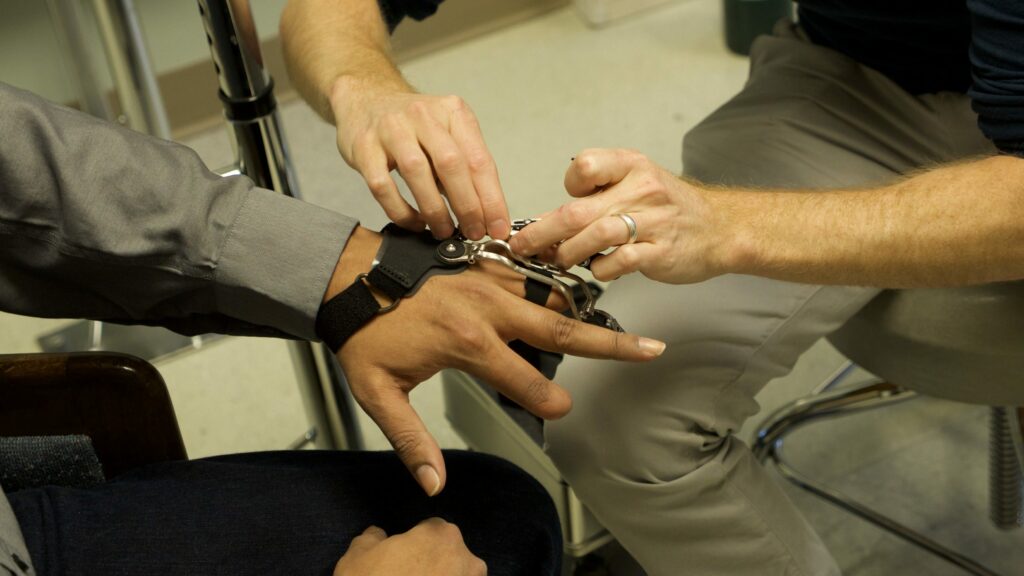What questions do I ask? Choosing a prosthetist is a big decision! Unlike most doctors, your prosthetist is someone you will continue to see several times per year and throughout your lifetime as a prosthesis user.
A prosthetist is an allied health professional who has been educated and certified to specialize in the treatment of persons with amputations. These professionals are very skilled in determining the appropriate prosthetic interventions for both upper and lower limb deficiencies. Prosthetists specialize in providing custom-made devices, which provide optimum fit and function to help patients achieve their goals. Given the complexity of most partial hand amputations, the prosthetist will rely on their skills and experience to recommend the most appropriate course of action for your case.
Overall, your prosthetist is responsible for a successful connection between you and technology – be it physical, psychological, or therapeutic.
It is important that you and your prosthetist have a relationship that is honest and trusting. Your feedback regarding comfort, successes, and limitations is essential to the outcome of any prosthetic intervention. It can make all the difference in reaching your goals.

We recommend that you schedule a free consultation with multiple clinics before deciding on the prosthetist who is best for you. You can use this time to get to know the prosthetist/orthotist a bit better to find out if this is someone you want to work with long term.
Below are sample questions that can help you decide who will be the best fit for you:
What brought you to this line of work? What about your job do you like most?
This type of question will help you get to know your prosthetist a little better.
What has been your experience working with amputees of my amputation level?
This is can help to establish experience with your type of amputation. Just like an orthopedic doctor versus a neurologist, some prosthetists may focus on different types of amputations. Some may choose upper limb amputations or lower limb amputations for their area of expertise.
Will you accept my insurance and secure any necessary prior approvals for my care? Are andevicare excluded? Will I be getting the most advanced technology available for level of amputation?
Insurance coverage can be a very confusing part for any type of patient care. Your plan coverage for prosthetics and orthotics may differ from your general coverage. It is a good idea to speak with the clinic staff to help verify your benefits.
Can you put me in touch with a patient with the same type of amputation or device so that I may ask some questions? Do you have connections to local amputee support groups I can get involved with?
Community ties are important! Most find peer groups inspiring and rewarding. It can even help forge lifelong friendships. Oftentimes clinics will have direct ties to local groups and in some cases may even sponsor one. If you have any interest in becoming an amputee peer advisor, this is a great place to start!
After this conversation, you will have done your homework and can feel confident about your choice of care providers. It is important you choose someone who is caring, and you are comfortable with! Open, direct communication is the tenant of a successful patient-prosthetist relationship.


